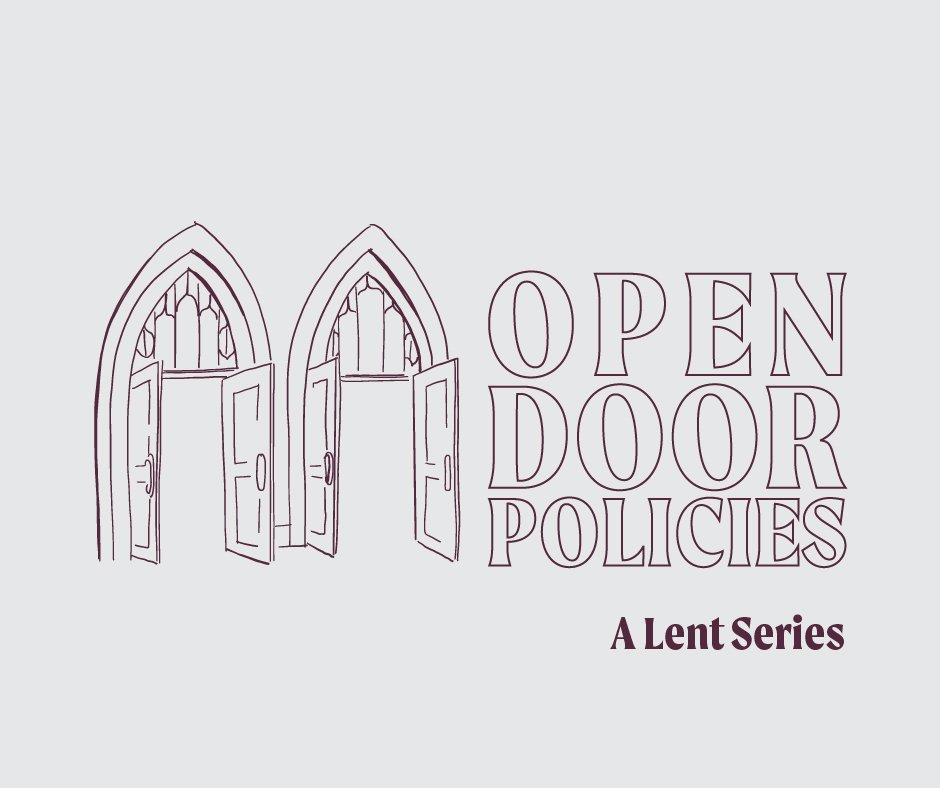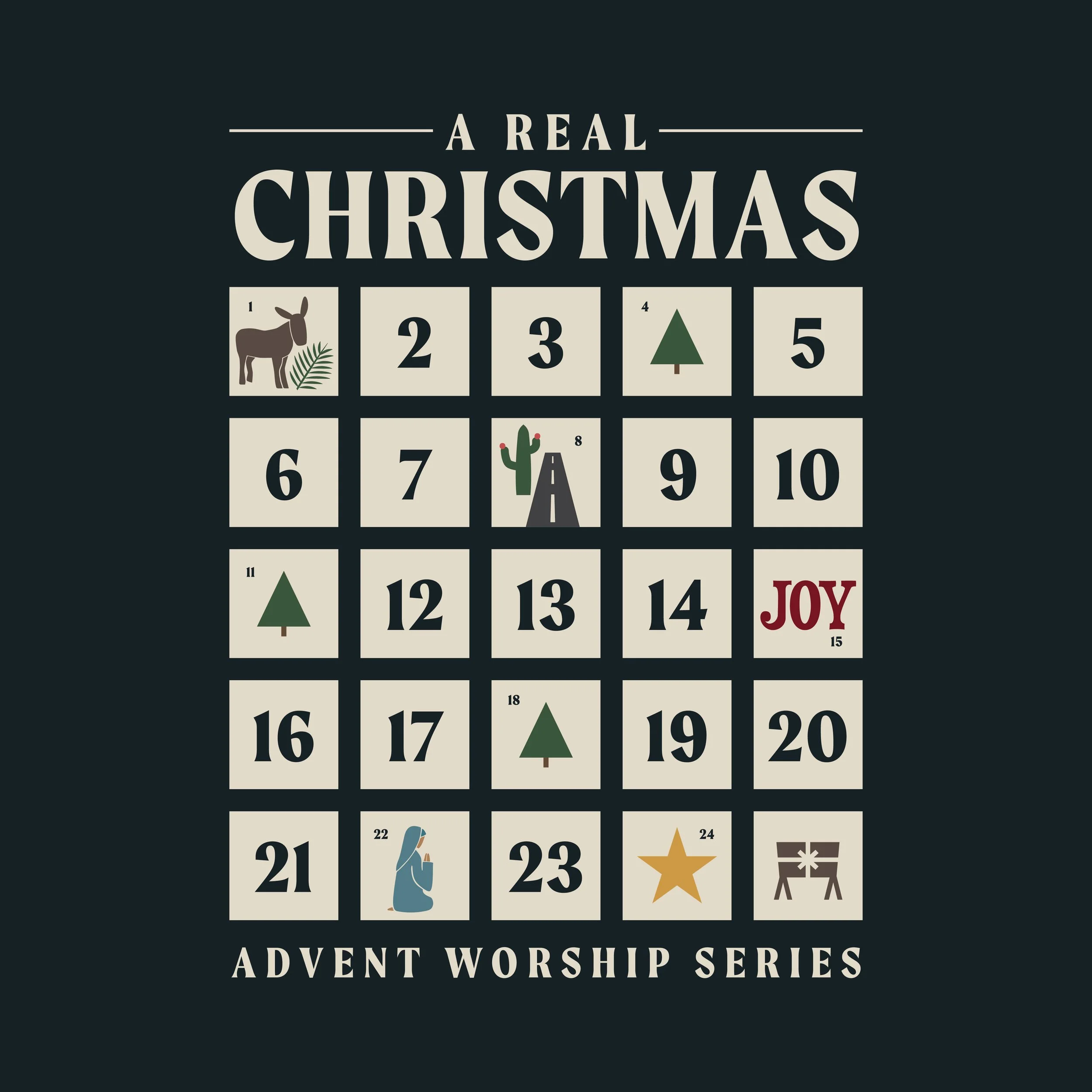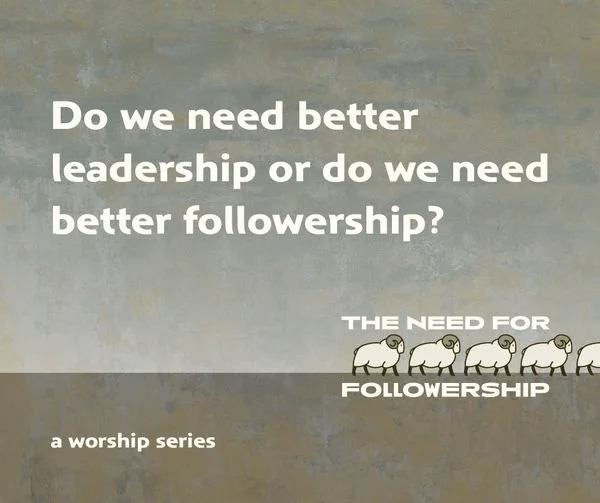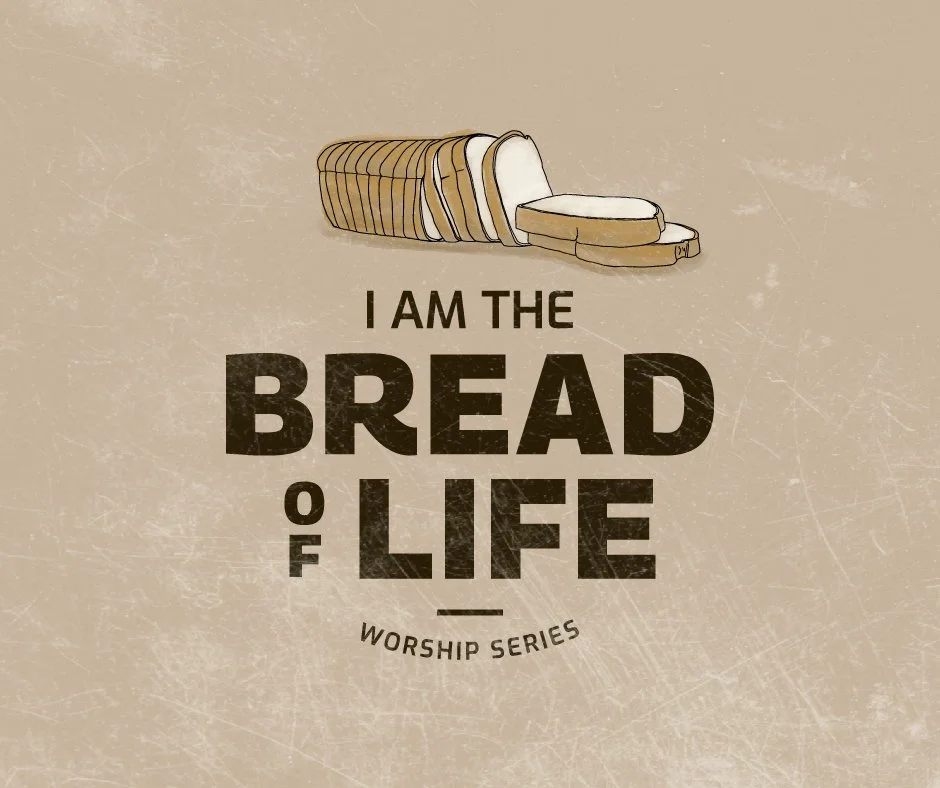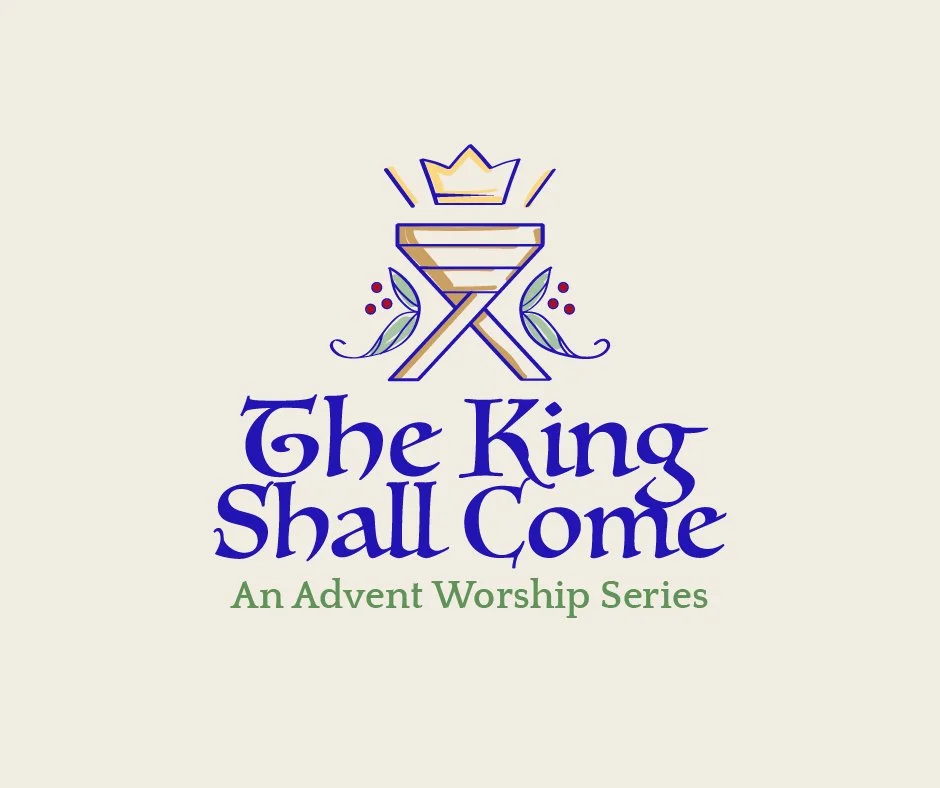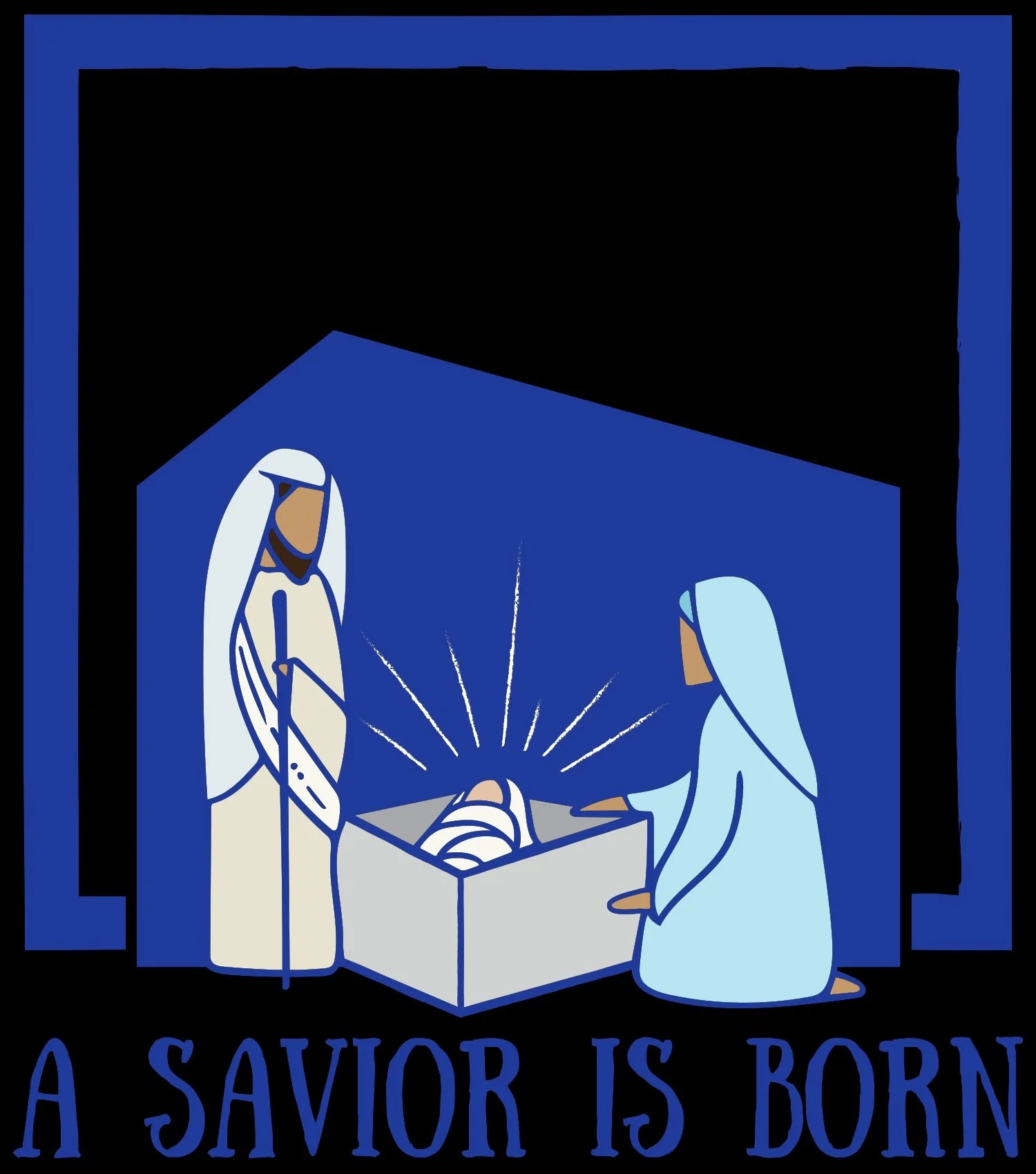Most Recent Sermons
Open Door Policies
When a wayward child wanders far from home, how does a loving parent pursue them without driving them further away? One thing that parent does is let the child know that there is an ongoing open-door policy. The child knows they will always be welcomed back home. Likewise, when we wander from God, he always keeps his door open for us. But God doesn’t just passively wait for us to return. He lovingly pursues sinners in ways that make them long for home.
In the Church Year, we have come to the season of Lent. The word Lent comes from an old English word for spring: “lengthen,” when the days grow longer. For over 1400 years the Church has set aside the 40 days between Ash Wednesday and Easter as a time of repentance and renewal. In this 40-day journey to the cross and tomb, we will see the surprising strategies our heavenly Father uses for getting sinners back home, close to him and the loving care he offers.
Sermon Study Guide: Week Five (Isaiah 43)
Sermon Study Guide: Week Four (Luke 15, select verses)
Sermon Study Guide: Week Two (Philippians 3-4)
Sermon Study Guide: Week One (1 Samuel 17)
Epiphany MOments
“Epiphany” comes from a Greek word that means “reveal.” When someone has an epiphany, it’s not that reality changed. The way they see that reality is what changed, for a deeper truth has been revealed. An epiphany is an “a-ha!” moment causing us to look at things very differently.
In the Church Year, Epiphany is the season where we see Jesus begin his ministry, revealing the reason the Son of God came to earth. In this season we will come to understand that when we have Jesus in our lives, it does not always mean our reality drastically changes. It simply means that we see reality differently (and better). Jesus always provides an abundance of epiphany moments.
Sermon Study Guide: Week Five (Isaiah 6)
Sermon Study Guide: Week Four (2 Timothy 3-4)
Sermon Study Guide: Week Three (Acts 4)
Sermon Study Guide: Week Two (John 2)
Sermon Study Guide: Week One (Titus 3)
A Real Christmas
A parent says, “I want to give my kids a real Christmas.” What do you think that means? Perhaps they are thinking of a trimming a freshly cut tree, or finding the perfect presents, or spending the holidays with extended family. “Then it will be a real Christmas!”
Certainly those are all wonderful things, but none of them are what makes Christmas real. The sad truth is Christmas is the most beloved holiday of so many, yet so few know what Christmas is really about.
If you want a real Christmas, the church season of Advent helps. Advent is a Latin word that means “coming.” In the season of Advent Christians observe the connection between the first time the Son of God came into our world as the Savior and the second time he will come to bring us deliverance. To put it in another way, Advent helps prepare our minds and hearts so that we might receive the real gift of that first Christmas!
(no sermon study guide this week!)
Sermon Study Guide: Week Three (Zephaniah 3)
Sermon Study Guide: Week Two (Philippians 1)
Sermon Study Guide: Week One (John 1)
Live Like You’ll Live Forever
“Live each day like it’s your last.” You have probably heard that advice. It sounds wise—an encouragement to take advantage of the time you have.
However, that advice is completely backwards. The reality is, thanks to Jesus, we have an unending amount of time. Let that sink in. Really think about it. Jesus has given you the gift of eternal life. You are going to live forever.
If you really thought it was your last day, that belief would shape how you lived that day. In this series, let us consider how the gift of eternal life shapes how we live each day. Live like you’ll live forever!
Sermon Study Guide: Week Five (Mark 13)
Sermon Study Guide: Week Three (Mark 12)
Sermon Study Guide: Week Two (Revelation 20)
Sermon Study Guide: Week One (Revelation 14)
The Need for Followership
“We need better leadership!” Have you ever said that? Perhaps you were frustrated with the direction being taken by some elected official or by management at your workplace or by the coach of your favorite team. You were frustrated because you know that no matter how many resources an organization has, it will flounder if leaders do not lead well: providing direction, training, motivation, coordination, encouragement, and even grace. Leadership is extremely important. No wonder we lament, “We need better leadership!”
Jesus Christ is the leader of our congregation, home, and lives… and his leadership is perfect in every way. Therefore, when things are amiss in any of those arenas, what is needed is not better leadership but better followership. In this series, we ask Christ to empower us with his Spirit so that we might better follow his lead. May we better reflect the beauty of his life, better make his priorities our own, and better serve our God and neighbor!
Sermon Study Guide: Week Eight (1 Corinthians 9)
Sermon Study Guide: Week Seven (Hebrews 4)
Sermon Study Guide: Week Six (Ephesians 5-6)
Sermon Study Guide: Week Five (Revelation 12)
Sermon Study Guide: Week Four (Numbers 12)
Sermon Study Guide: Week Three (Ephesians 6)
Sermon Study Guide: Week Two (Isaiah 35)
Sermon Study Guide: Week One (Deuteronomy 4)
I Am The Bread of Life
“From that time on many of his disciples turned back and no longer followed him” (John 6:66).
What happened?! We just heard in church that Jesus had recently fed thousands of people! Everywhere he went, he was mobbed by multitudes looking for the hope and healing he provided. In the first part of Jesus’ ministry he was so popular, but that changed so quickly. What had Jesus done that was so bad?
He said, “I am the bread of life” (John 6:35). That statement seems to be cryptic at worst, and it doesn’t appear to be offensive. But as the crowd grasped what Jesus was claiming, they decided they no longer wanted anything to do with him.
Bread is a staple food that people ate every day in Jesus’ time. That helps explain what Jesus is teaching when he calls himself “the bread of life.” Given the enormity of that statement, it even explains why people would abandon Jesus for making that claim. Still, with this saying we will see how Jesus offers precisely what we need for daily, spiritual sustenance, even if it means difficult things for us too.
A Top-Down Faith
The phrase “from the top down” is often used to denote a hierarchical system of management or governance. The will and beliefs and directives of those “at the top” are imposed—sometimes aggressively, sometimes even oppressively—on those below.
In this second half of the church year, we will see that Christianity is very much a top-down faith… but not in the sense that those teachings are oppressively imposed on us. When we call Christianity a “top-down faith,” we mean that it tells us things about God that are so beautiful and good that they couldn’t possibly have originated from human thinking. So, God sent his Spirit from heaven to earth—from the top down—to empower his children to believe that which would otherwise be totally unbelievable.
Sermon Study Guide: Week Five - Mark 5
Sermon Study Guide: Week Five - Mark 4
Sermon Study Guide: Week Four - Mark 4
Sermon Study Guide: Week Three - Genesis 3
Sermon Study Guide: Week Two - Colossians 2
Sermon Study Guide: Week One - Romans 8
Resurrection Reality
The Bible says, “Christ has indeed been raised from the dead” (1 Cor. 15:20). Big word… “Indeed”! It is God’s way of stressing that we must not think of Jesus’ resurrection like just another “happy ending.” The resurrection is not just some legend or fable, it really happened. That means Easter is not just a holiday but history. And on time’s infinite line, Jesus’ resurrection is a particular moment that defines reality for us all.
What is that reality? That Jesus is exactly who he claimed to be—the Son of God, our Lord and Savior! If Christ remained dead, then the grave is the final, ugly, rotten end of us all. But since Christ has been raised, God also says it means that “all will be made alive” (1 Cor. 15:22). Christ can entirely change your future, and along with that he has the power to change your life right now.
Sermon Study Guide: Easter 6 (Acts 9:36-42)
Sermon Study Guide: Easter 5 (John 15:1-6)
Sermon Study Guide: Easter 3 (Acts 3:1-20)
Sermon Study Guide: Easter Festival (Isaiah 26)
Rethinking Religion
Everyone has assumptions about God, and likewise, everyone has assumptions about religion. Often these assumptions are negative. Americans are walking away from Christianity in breathtaking numbers. It raises questions. How do those people know if their assumptions about religion are correct? Do they really understand Christianity at all?… For that matter, do we? Do we truly understand what our religion means?
As much in the season of Lent as any other church season, Jesus teaches things that turns the world’s assumptions about religion upside down. Since we call our faith “Christianity”, in this holy season let us go straight to Christ and let him replace assumptions with the truth. Jesus, help us to rethink religion!
Sermon Study Guide: Good Friday (Isaiah 52-53)
Sermon Study Guide: Maundy Thursday (Exodus 12)
Sermon Study Guide: Week Five (John 12)
Sermon Study Guide: Week Four (Numbers 21)
Sermon Study Guide: Week Three (John 2)
Sermon Study Guide: Week One (Genesis 22)
From the River to the Mountain
“Epiphany” comes from a Greek word that means “reveal.” Today, if someone says, “I had an epiphany,” it means he had an extremely important, life-changing revelation. During the Church Year, that is the reason for the season of Epiphany—to reveal important truths about Jesus Christ that will indeed change your life.
For most of his adult life, Jesus was known simply as Mary’s son. He followed his adoptive father, Joseph, into the carpentry business. People in his hometown of Nazareth probably thought of Jesus as a very nice man—hardworking, honest, a role model for others. (That is still how many think of Jesus today.)
But around the age of thirty, the full truth about Jesus began to be revealed: his person, his power, his purpose. It started with Jesus standing in a river with John the Baptist. The biggest epiphany took place at a mountain, where select followers saw Jesus shining brighter than the sun. All these epiphanies—all these revelations about Jesus—changed the lives of everyone around him. In this season of Epiphany, as we follow Jesus from the river to the mountain, may they change us too.
Sermon Study Guide: Week Five - 2 Kings 2:1-12
Sermon Study Guide: Week Four- Mark 1:29-39
Sermon Study Guide: Week Two - John 1:43-51
Sermon Study Guide: Week One - Romans 6:1-11
The KINg Shall Come
The Church Year begins with the season of Advent, which means “coming.”
When someone is coming over, what do you do? It depends on who is coming and why they are coming. If it’s a good friend popping in for a quick visit, you don’t worry too much about how the house looks or serving a meal. But imagine the governor is coming over for an evening to give you some sort of citizen’s award. That’s a big deal. There is work to be done: deep cleaning, planning a menu, getting the yard looking its best, etc.
It’s why Advent is a big deal, because we remember how Jesus came as king. We see why the King came on that first Christmas and what it means for us when he comes again on Judgment Day. In this season we cherish the way our King comes to us in Word and Sacrament, establishing his kingdom in our hearts.
Sermon Study Guide: Week Three (John 1)
Sermon Study Guide: Week Two (Isaiah 64)
Sermon Study Guide: Week One (1 Thessalonians 4)
The Time Between
In the great timeline of human history, there are only two ultimately significant points: the first time Christ came to our world to win salvation by his life, death, and resurrection; and the second time when Christ will come to bring his everlasting kingdom.
We live in the time between those two points. It is a time of tension. We know that peace and perfection are ours already because of what Jesus did the first time he came, yet we do not enjoy a peaceful and perfect existence right now. We will not know such a life until Christ comes a second time. As the church year draws to a close, Scripture encourages us to “wait and watch”, and until then Christ uses his word to teach how to live in the “in between”.
Sermon Study Guide: Week Four (Matthew 25)
Sermon Study Guide: Week Three (2 Thessalonians 2)
Sermon Study Guide: Week Two (1 John 3)
Sermon Study Guide: Week One (Daniel 6)
Tell us a Story!
We love stories. There’s nothing like gathering around a campfire with those close to you and hearing a story. It’s something that was not lost on Jesus. Much of what Jesus has to say to you and me is contained within his parables. Parables are simple little stories that contain profound truths about life and eternity.
For the believer, a parable takes a challenging spiritual fact and makes it clear. However, since the parable conveys spiritual truth, for those without faith the story remains just that—a story. May God send us his Holy Spirit, so that we would receive the peace and power Jesus offers us in his parables. Tell us a story, Jesus!
Sermon Study Guide: Matthew 22 (Week Four)
Sermon Study Guide: Matthew 21 (Week Three)
Sermon Study Guide: Matthew 21 (Week Two)
Sermon Study Guide: Matthew 20 (Week One)
The Church God Wants
“I want a church that…” How would you complete that statement? Would you focus on size—big or small? Would you think more about style—formal versus casual? Do certain desired church programs that come to mind? What exactly do you want in a church?
In this new worship series, we will see that these are not the right questions. The Bible says Jesus bought the Church with his blood, which means the right question is instead: what does God want in a church? You might find a church that runs all the youth programs you want or has a vibe that you enjoy or is in your ideal location... But if that church is not doing what Christ wants it do, then it really is not a spiritually healthy place to be. So let us think about the church God wants: What does it look like? What are its priorities? What will it do?
Sermon Study Guide: Week Four (Galatians 2)
Sermon Study Guide: Week Three (Jeremiah 15)
Sermon Study Guide: Week Two (Matthew 16)
Sermon Study Guide: Week One (Matthew 15)
Define: Christian
Ask ten different people to define a “Christian”, and you may get ten different answers. One might say, “a Christian is someone who believes in Jesus.” Okay… but even the demons believe that Jesus exists and is the Son of God, so that doesn’t really cut it. Another person with a more negative view might say, “a Christian is someone who believes he is better than others.” That doesn’t seem right… but at the same time, shouldn’t Christians be held to a different standard?
In our next worship series, Christ himself defines the term Christian and describes what Christians do. We often do not do all those things. There are even times when people look at our behavior and assume we are unbelievers. Yet, throughout this series, Jesus will demonstrate that Christians are those who runs to Christ for forgiveness precisely because they have failed to live like what they are: a Christian. And, as we receive the mercy of Christ, it moves us to strive with all our being to better fit Christ’s beautiful definition, doing all the things Jesus says that Christians do.
Sermon Study Guide: Week Seven (Matthew 14)
Sermon Study Guide: Week Six (1 Kings 17)
Sermon Study Guide: Week Five (1 Timothy 6)
Sermon Study Guide: Week Four (Matthew 13)
Sermon Study Guide: Week Three (Isaiah 55)
Sermon Study Guide: Week Two (Matthew 11)
Sermon Study Guide: Week One (Matthew 10)
The Holy Ministry
“Ministry” simply means “service.” Throughout history, God has called individuals to serve God’s people by sharing God’s Word. Many today feel they do not need to be part of a church, or that they do not need such preaching and teaching. “I can be a believer without any of that.”
If that is true, why did God call so many ministers in Bible times, and why does Jesus keep calling ministers to share his gospel today? It's because Jesus himself believes ministry is necessary, and he knows what we need better than we do.
We call it “holy ministry” because the Holy Spirit does his work through his ministers. As ministers proclaim God’s Word, the Spirit unleashes his power. We also call it “holy ministry” because through gospel ministry our faith is sustained, which is what makes us holy in God’s eyes.
Sermon Study Guide: Week One (2 Corinthians 13)
Sermon Study Guide: the Festival of Pentecost (1 Cor. 12)
If Jesus Lives…
Life is full of either/or moments where you face a choice between two alternatives. Some are relatively insignificant, others can change the course of your life.
Easter presents us with biggest either/or of them all: the Bible says it’s when Jesus rose from the grave as the Savior. So… either Jesus is still dead, or he rose. And that means either Jesus is a complete waste of your time, or he is your source of salvation who offers what nothing else does. Do you know what he is for you?
This Easter season we’re going to see that Jesus did indeed rise from the grave, and that means he can help us with all the other problems we face in our life.
Sermon Study Guide: Seventh Sunday of Easter (Luke 24)
Sermon Study Guide: Sixth Sunday of Easter (John 14)
Sermon Study Guide: Fifth Sunday of Easter (Acts 4)
Sermon Study Guide: Fourth Sunday of Easter (John 10)
Sermon Study Guide: Third Sunday of Easter (1 Peter 1)
Sermon Study Guide: 2nd Sunday of Easter (1 Peter 1)
Sermon Study Guide: Easter Sunday (1 Corinthians 15)
Our Greatest Needs
What do you really need right now? To answer that question, you must first define what a “need” is. A “need” is greater than a “want.” If you lack something you want, life goes on just fine. If you lack something you need, that presents a problem.
Mankind’s greatest problems are universal. We all live under the curse of sin, which makes us utterly helpless in our natural state. Left in sin, mankind is doomed to death, and not just physical death.
Lent is the season of the Church Year where we wrestle with our greatest needs. Lent also demonstrates that in Christ, all our greatest needs are met. If you lack Christ, you have nothing. If you have Christ, you have everything you truly need.
Sermon Study Guide: Week Four (2 Kings 4)
Sermon Study Guide: Week Three (John 9)
Sermon Study Guide: Week Two (John 3)
Sermon Study Guide: Week One (Romans 5)
The Savior’s Sermon
The Greek word epiphany means “appearance.” In the first half of this church season called Epiphany, we saw Jesus appear on the scene and begin his ministry. He called his disciples, and not long after large crowds started following Jesus around Galilee.
Now, in the second half of this season, we focus on what Jesus teaches us about being one of his followers. He does this with the most famous sermon of all time. It was not delivered while standing in a pulpit but while sitting on a hill. Elevated above the crowd, Jesus’ voice carried through the air, and his followers hung on his every word as the Christ talked about living an authentic Christian living. It is called the Sermon on the Mount.
Sermon Study Guide: Week Three (1 Samuel 26)
Sermon Study Guide: Week Two (1 Peter 2)
Sermon Study Guide: Week One (Matthew 5)
Jesus Appears
The Gospels provide only a few details about Jesus’ life as an infant and his maturation as an adolescent. Then the Scriptures fall silent, telling us very little about two decades of Jesus’ life.
As a young adult, we only know that Jesus lived quietly in Galilee, practicing the carpentry he had learned from his adoptive father, Joseph. For much of his life, then, Jesus had no followers, nor was he famous. But at the exact time God the Father had appointed, Jesus left that obscurity behind.
The word epiphany means “appearance.” In the church season of Epiphany, we watch Jesus begin his public ministry and make his first appearances. In those appearances, it quickly becomes clear that this is more than just a random carpenter’s son. As Jesus appears, we see exactly who he is and what he came to do.
Sermon Study Guide: Week Three (Matthew 4)
Sermon Study Guide: Week Two (John 1)
Sermon Study Guide: Week One (Matthew 3)
A Savior is Born!
The first Christmas sermon was preached to a small congregation consisting entirely of shepherds. The preacher was an angel. The message of his sermon? “Today in the town of David a Savior has been born to you.”
That is a heavy word: Savior. It says as much about us as it does about this child. If the angel had said a teacher or mentor was born, it would mean that within us exists the potential to fix all that is wrong with the world, we just need a little help or inspiration.
But the angel said, “A Savior has been born.” If someone needs saving, it means he is totally helpless, lost, and doomed without outside intervention. That is how God the Father viewed us: helpless, lost, doomed. So he sent more than a coach. He sent his only Son to be our Savior.
Sermon Study Guide: Hebrews 1
Come, Lord Jesus!
The Latin word adventus means “coming.” The last words in Scripture are “Come, Lord Jesus!” Thus, the season of Advent begins with the end in mind, when Jesus Christ will come and destroy this sin-broken world. If that is what Jesus and his angels are coming to do, why would we cry out, “Come, Lord Jesus”? Because we know that Jesus has come into our world once before.
From the manger to the cross, Jesus did everything necessary to redeem mankind. As this new Church Year returns us to the beginning of Christ’s life, we begin to see God’s promises of deliverance fulfilled, which provides us with hope of future deliverance. Advent prepares us for Christmas and allows us to see that because of what Christ did when he came the first time, believers need not fear when he comes again. Instead, we yearn for it. Come, Lord Jesus!
Sermon Study Guide: Isaiah 7
Sermon Study Guide: Matthew 11
Sermon Study Guide: Isaiah 11
Sermon Study Guide: Matthew 24
The Last Day
Certain days mean different things to different people. Next June 10th might mean nothing to you, or it might be the day you get married. Mother’s Day can be a day of great joy to the woman with three children who profess their love and appreciation on that day, but the same day can be extremely painful for the woman who has never been able to have children. Certain days mean different things to different people.
That will be true on the Last Day as well. In the final weeks of the church year it is natural for us to think about that Last Day and what it means. The Last Day will mean very different things to different people, but through faith in Jesus Christ our Savior, we can be sure of the good things it means for us and for our loved ones.
